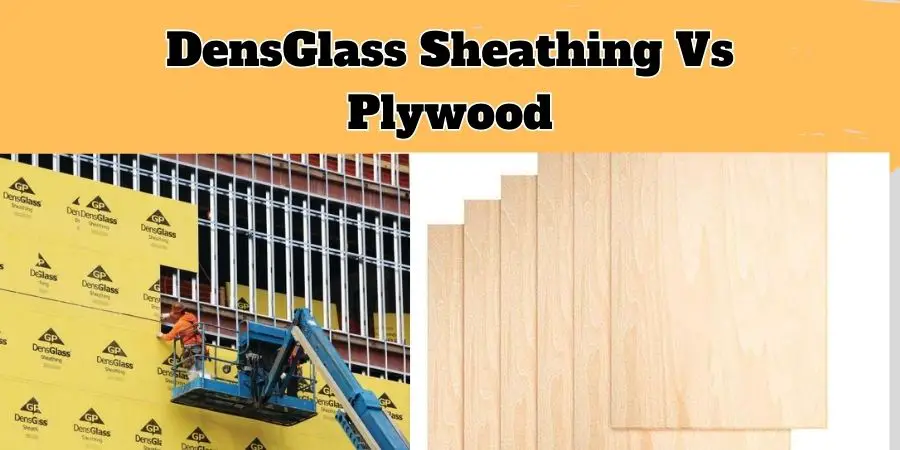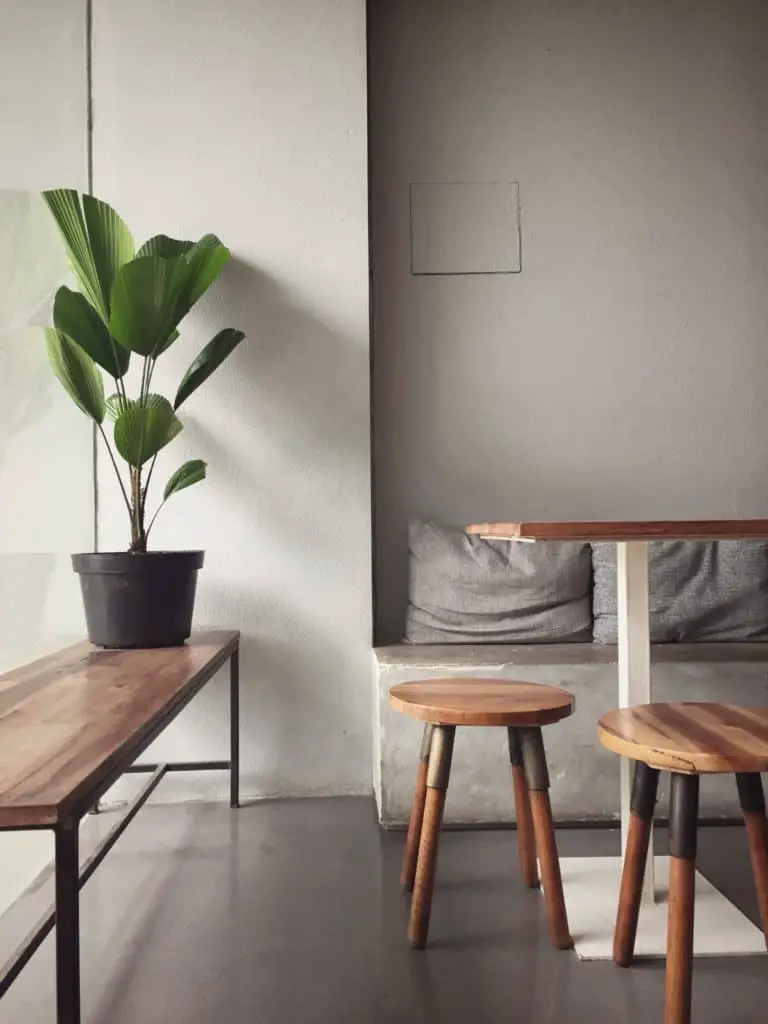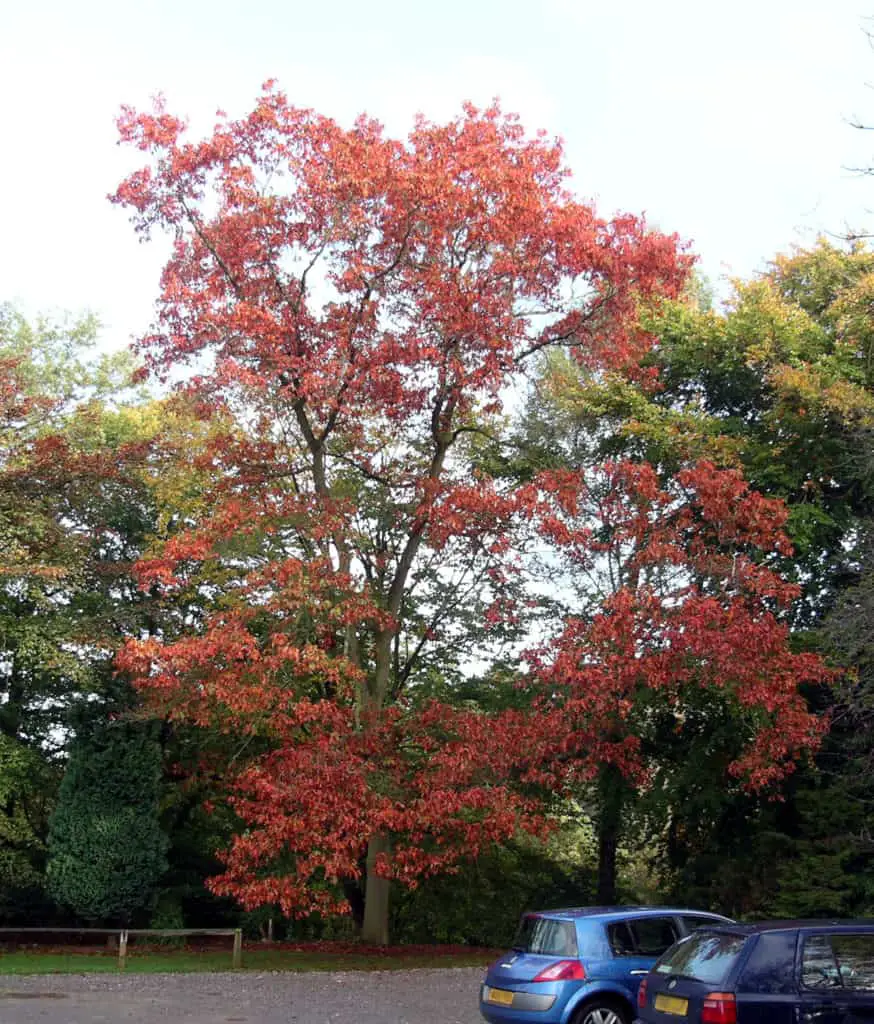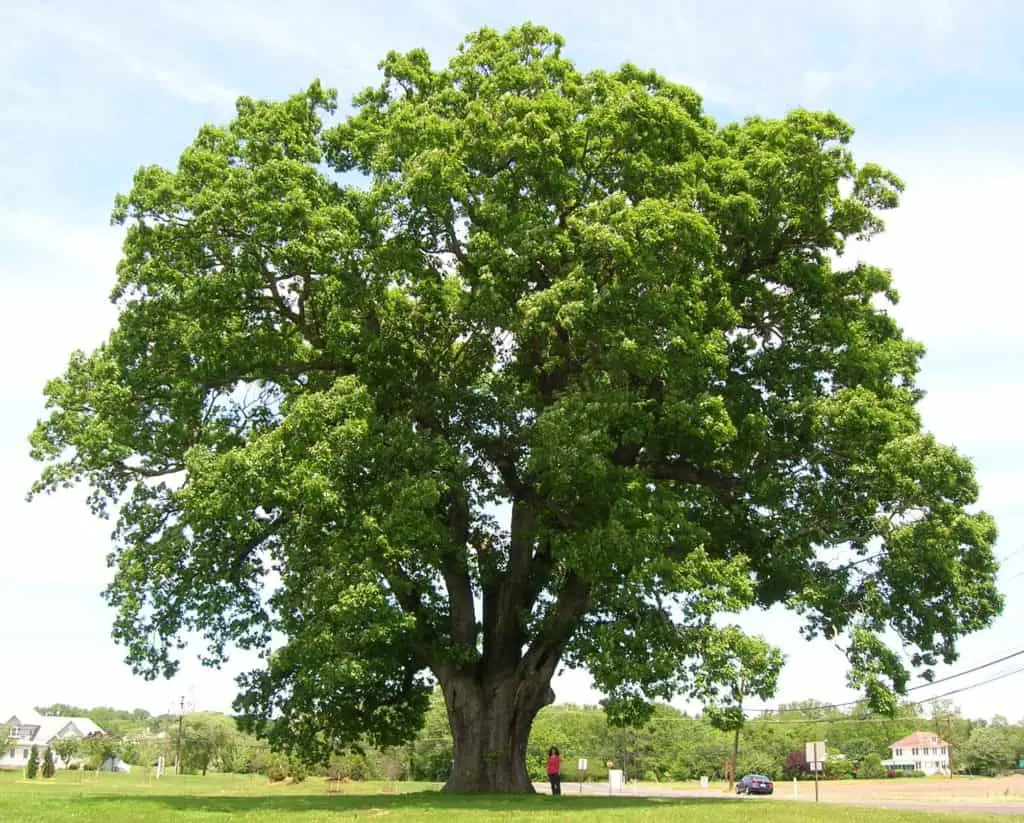Many people wonder which is better, DensGlass or Plywood, but there is no clear answer. DensGlass is stronger and more durable, while Plywood is aesthetically superior due to its natural beauty and rustic feel.
Here are the basic differences.
Table of Contents
DensGlass Sheathing Vs Plywood
Plywood is a type of exterior wall sheathing made by gluing thin layers of wood. DensGlass is the most commonly used exterior wall sheathing because it has denser material, which makes it stronger and more durable.
Which one of these two is better? It depends on how you look at them!

What is DensGlass Sheathing?
DensGlass Sheathing is a roofing material that has been used in the United States since the 1950s. Made from recycled glass and expanded polytetrafluoroethylene, it is known for its durability, strength, and thermal resistance. This material was created to protect roofing systems from water penetration and corrosion, making it an excellent choice for both residential and commercial buildings.
Installation and Usage
DensGlass Sheathing comes in sheets that are 1/4 inch thick and 10 to 15 feet wide. These sheets can be installed in an overlapping manner to create roofs up to 12 inches thick. This roofing material is commonly used on low-slope residential buildings or buildings owned by businesses that need smaller roofs or budgets.
Advantages of DensGlass Sheathing
DensGlass Sheathing offers several advantages over other roofing materials. It is highly efficient at reducing heat transfer, thermal bridging, and heat loss from buildings, making it an excellent choice for those looking to improve energy efficiency. Additionally, it helps insulate and protect buildings from moisture damage and humidity.
Types and Protection Factors
There are various types of DensGlass sheathing available today, each with its own application and protection factor. It is important to choose the right type of DensGlass Sheathing for your specific needs to ensure the best possible protection and energy efficiency.
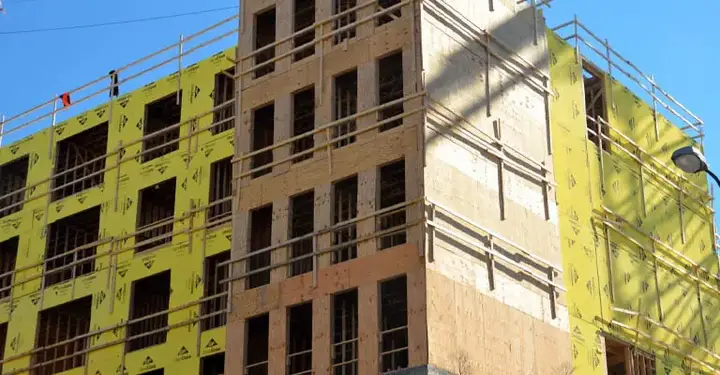
What Is Plywood Sheathing?

Plywood is a wood panel made up of sheets of paper or veneer that are bonded together with adhesive. It typically consists of three layers: the core layer, the outer layer, and the inner layer. The core layer is laminated together first, followed by the outer and inner layers to create a sandwich.
Plywood Sheathing in Construction and Remodeling
Plywood Sheathing is commonly used in construction and remodeling projects as an exterior building material. It is made up of layers of wood and fiberglass and is mainly used as exterior roofing for houses, barns, or other buildings to provide protection against storms or floods. Plywood can also be used in industrial applications for furniture manufacturing or sheet metal fabrication.
Installation and Usage
Plywood sheathing is usually installed over a wooden frame and is nailed or screwed onto the frame. It overlaps each surface of the frame by about one-third of its thickness, providing support to the boards that make up the frame and preventing it from sagging.
The main use for plywood sheathing is as exterior roofing for houses, barns, or other buildings to provide protection against storms or floods. Plywood can also be used in industrial applications for furniture manufacturing or sheet metal fabrication.
It is usually installed over a wooden frame and is generally nailed or screwed onto the frame. The sheathing overlaps each surface of the frame by about one-third of its thickness.
They support boards that make up the frame, preventing it from slipping or cracking due to thermal expansion and contraction of the underlying materials such as wood.
Advantages of Plywood Sheathing
- Durability: Plywood Sheathing is known for its strength and durability, making it a reliable choice for construction and remodeling projects.
- Moisture Resistance: Plywood Sheathing has moisture-resistant properties, making it resistant to rot, decay, and mold.
- Energy Efficiency: Plywood Sheathing can help improve energy efficiency in buildings by reducing heat loss and improving insulation.
- Versatility: Plywood Sheathing can be used for a wide range of applications, from roofing to furniture manufacturing.
- Cost-Effective: Plywood Sheathing is a cost-effective building material that is widely available and easy to install, making it an excellent choice for budget-conscious projects.
DensGlass vs plywood sheathing- Which one should you choose?
When it comes to choosing between DensGlass and plywood sheathing, there are several factors to consider. Here are the advantages of DensGlass over plywood sheathing:
Longevity and Durability
DensGlass sheathing lasts longer than plywood because it does not warp or crack, can be repaired after construction, and has a stronger composition. It also withstands harsh weather conditions better than plywood, making it more durable.
Weight and Ease of Installation
DensGlass is denser and heavier than plywood, but it can be installed by professionals, whereas plywood can be installed by anyone.
Water and Fire Resistance
DensGlass is highly resistant to water and fire, making it ideal for exterior cladding of buildings. Plywood, on the other hand, is prone to moisture damage and warping, and is less fire-resistant.
Color Protection and Finish Options
DensGlass has a high-grade protective coating that prevents color fading in natural light, and has a higher quality surface finish than plywood due to fewer voids between wood grains.
Cost
DensGlass is less expensive to install than plywood sheathing, but it is a more cost-efficient investment in the long run due to its longevity and durability, and lower maintenance requirements.
Is DensGlass as strong as plywood?
So, the big question is whether DensGlass sheathing is really stronger than plywood. According to the folks over at DensGlass, the answer is a resounding “yes!” But of course, it all comes down to weight capacity and testing.
When it comes to weight capacity, both DensGlass and plywood have different thicknesses and sizes that affect their load-bearing capabilities. DensGlass is made of glass, so its thickness increases with size. And while plywood is made of wood, which can rot and warp in moist climates, DensGlass is weatherproof and resistant to water damage.
So, if you’re building in an area with heavy rainfall or snowfall, DensGlass may be a great option for you. Plus, it won’t move as easily as plywood during windstorms or other extreme weather conditions.
But here’s the kicker: DensGlass is more expensive than plywood. So, you’ll have to weigh the benefits against the cost to determine whether it’s worth it for your project.

